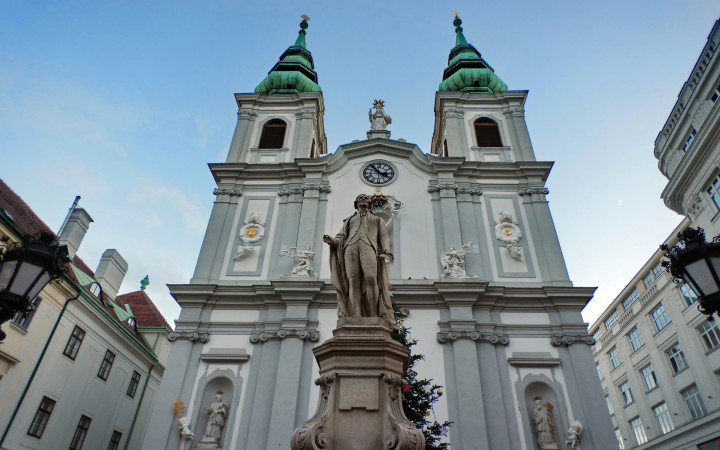Today’s Wonder of the Day was inspired by Shayden. Shayden Wonders, “Who Is Joseph Haydn?” Thanks for WONDERing with us, Shayden!
We’ve learned about quite a few musicians here in Wonderopolis. You may recognize the names Chopin or Robert Johnson. Maybe you’ve read about the Beatles or Eddie Van Halen. The musician we’re learning about today, though, is much older than any of these names. Who are we talking about? Only the great composer Joseph Haydn!
Joseph Haydn (say “Yo-sef Hi-den”) was born on March 31, 1732. His full name was Franz Joseph Haydn. He grew up in Austria and showed musical talent from an early age. When Haydn was six, his parents sent him to receive training from a relative. He quickly learned to play both the harpsichord and violin.
However, Haydn’s most obvious talent at this point was singing. He was so impressive as a vocalist that, in 1740, he moved to Vienna to join the boy’s choir at St. Stephen’s Cathedral. He sang and practiced instruments there for the next nine years, until his voice changed. Then, unable to sing high notes, he was dismissed from the choir.
For the next several years, Haydn supported himself by teaching and playing music. It was during this time that he also learned how to write music. He studied the basics of composition while playing music with Nicola Porpora and from the music of great composers.
Soon, Haydn built a reputation for himself as a composer. He wrote his first opera, “Der krumme Teufel” (“The Limping Devil”) in 1751. Aristocrats began seeking him out as a music teacher and composer. In 1761, he started a long career as the Kapellmeister (music director) for the wealthy Esterházy family.
Haydn would remain in this role for 30 years. During this time, he wrote music, played for the family, and organized an orchestra. However, the job made his life quite lonely. The Esterházy home was in a remote area, far away from the friends he had made in Vienna.
One of those friends was another great composer named Wolfgang Amadeus Mozart. When Haydn visited Vienna, the two would write and play music together. Both inspired the other, and Haydn mentored the much younger musician. Mozart later dedicated a set of quartets to Haydn, illustrating their deep friendship..
In the early 1790s, Haydn left the Esterházy home. He toured London, playing for large crowds of admirers. He also met Ludwig Van Beethoven during this time and took him on as a student. However, the two later had a falling out after Beethoven didn’t like some feedback Haydn gave him. Eventually, Haydn returned to part-time work with the Esterházys but continued to write his own music and spend most of his time in Vienna.
In 1809, Haydn passed away at the age of 77. His impact on music was enormous. Many credit him with inventing the string quartet. He was one of the most important composers in the classical genre. Some of his most lasting works were “String Quartets, Op. 64,” “The Seven Last Words of Christ on the Cross,” and “The Creation.”
Have you ever listened to classical music? If so, you’ve likely heard the work of Joseph Haydn. His pieces even inspire some modern music. If you listen closely, you may hear the influence of the classical genre in places you wouldn’t expect!
Standards: CCRA.R.1, CCRA.R.2, CCRA.R.4, CCRA.R.10, CCRA.W.2, CCRA.W.4, CCRA.W.9, CCRA.L.1, CCRA.L.2, CCRA.L.3, CCRA.L.6, CCRA.SL.1, CCRA.SL.2




